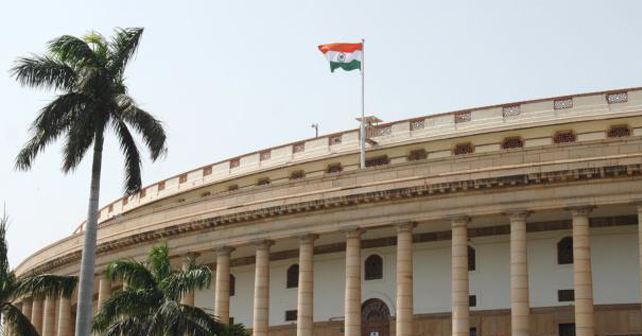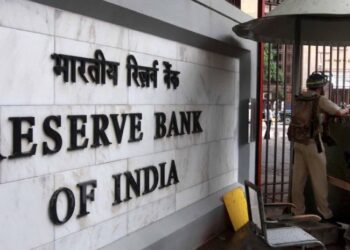Dr. Justice A.K. Rajan
Former Judge of Madras High Court
(The following text analyses the way how the rights of the States to identify the socially and educationally backward classes that are likely to be curbed under the guise of conferment of Constitutional powers to the National Commission of Backward Classes on par with the National Commission for the Scheduled Castes and the National commission for the Scheduled Tribes through the proposed 123rd Amendment of the Indian Constitution)
A person belonging to any caste that is included in the Schedule is considered as a Scheduled Caste person in the whole of India. But, a person included in the list of SEBC prepared by one of the State Commissions for SEBC may not be included in the list maintained by the National Commission for Backward Classes and also by other State Commissions. In fact a number of SCBC in Tamil Nadu and also in many other States, are not considered as SEBC for the Central Government services. Even within a State, in some cases, persons from some of the districts only are considered as SEBC.
Therefore, the act of inclusion in to or exclusion from the list of SEBC for the purposes of reservation in any State can be effectively done only by a State Backward Class Commission for extending any benefit of reservation within that State. That cannot be done by the NCBC. In Tamil Nadu within SEBC there is a sub classification as Most Backward classes [MBC]; in some other States SEBC is dived into four categories. Only because of that such a Scheme was framed by the Supreme Court. That is NCBC can identify the SEBC only for the purposes of Reservations made by the Government of India or under any other authority of GOI or authorities under the control of the GOI. In other words, NCBC cannot identify the SEBC for the benefit or Reservation given by any State or State Authority.
The NCSC or NCST has not made any sub classification within the SC or ST. In spite of the fact that some of the S. C. are very much backward vis a vis many other castes in the lists. Tamil Nadu made a sub classification for Arunthathiyars (3 per cent for Madigas). That is now under challenge before the Supreme Court. Though there is a demand for making separate reservation for Madigas for many years in many States that has not been done by the National Commission.
When the NCBC was established it was noticed that the NCBC had no powers, except to include or exclude some classes in the list of SEBC. For effective enforcement it had to refer the matter to NCSC. Therefore there was a demand for conferment of Constitutional powers on the NCBC similar to NCSC / NCST. There was a demand to amend the constitution and to add a new provision similar to Article 338. But that was misunderstood by the Union Government.
The GOI introduced the 123rd Constitution Amendment, by which a new Article 338B was to be included. It reads identical with Article 338 (NCSC) and 338A (NCST), except sub clause (5) (c). That clause reads in both the cases of SC and ST as “to participate and advise on the planning process of socio – economic development of the Scheduled Castes”[Scheduled Tribes]. But in 338B (NCBC) the words used are “to advise on the socio-economic development of socially and educationally backward classes”. This appears to be a deliberate but a very vital omission. Therefore, the powers of the proposed NCBC is not the same as that of NCSC or NCST.
Article 341 confers power on the President to specify the Scheduled Castes and Article 342 confers power on the President to specify the Scheduled Tribes. A similar provision 342A is proposed to be included conferring powers on the President to specify the “socially and educationally backward classes which shall for the purposes of this Constitution be deemed to be socially and educationally backward classes in relation to that State….. ”. This provision may appear innocuous. But this provision, if comes into force, will cause irreparable damage to the cause of the SCBC and it will be detrimental to the cause of OBCs.
There is also an amendment to Article 366. A 0new sub clause 26(C) is added as follows:-
‘(26C) “socially and educationally backward classes” means the backward classes as are deemed under article 342A for the purposes of this Constitution”
A combined reading articles 342A and 366(26C) would make it clear that after the 123rd amendment only the Union Government would have the power to determine if any class is a SEBC or not. The States will lose that power; that power vested with the States is taken away by the union Government. This is an affront on the federal structure of India. The States will become helpless to alleviate any redress to its own people even for any justifiable cause, even on absolute necessity.
A tribe called “Nari – Kurvas” also known as “ Kuruvikkaran”, in Tamil , is nomadic tribe. They never live at a fixed place. The first graduate came from the tribe, a girl, only after 2010. From this the backwardness of the tribe could be understood. Tamil Nadu government was trying to include this tribe in the list of Scheduled Tribe for Five decades in vain. Finally Tamil Nadu included this tribe as one of the SEBC. This will explain how difficult it would be to include a community in the list when it goes under the control of National Commission.
In the proposed Article 338B, Clause (2) provides as follows:“Subject to the provisions of any law made in this behalf by Parliament, the Commission shall consist of a Chairperson, Vice-Chairperson and three other Members and the conditions of service and tenure of office of the Chairperson, Vice-Chairperson and other Members so appointed shall be such as the President may by rule determine.” The first part of this compound sentence mandates that a Parliamentary law is required for determining the structure of the Commission, including the qualification for appointment as Chairperson, Vice-Chair person and members of the Commission. That is, since the qualification for appointment of the Chairperson, Vice-Chairperson and other members are not specified in this Article 338B, a law for that purpose is necessary. These aspects cannot be done by the Rules to be framed by the President.
Such a law, which was in force, The National Commission for Backward Classes Act 1993[Act 27 of 1993], under which a sitting or retired judge of the Supreme Court or High Court, as per the direction of the Supreme Court in the Mandal judgment, has been repealed by Bill No 70 of 2017. That Act need not have been repealed in its entirety; Chapter III, Powers and Functions of the Commission alone could have been repealed. Obviously the Union Government wants not to appoint a judge of the Supreme Court or High Court as the Chairperson. Such an appointment would be against the spirit of the direction of the Supreme Court.
Further, the proposed Article 342A would take away all the powers vested and were exercised by the States all along. If and when this article comes into force the States cannot include or delete any SEBC from the list of OBCs in the States. That power can be exercised only by the Union Government. That would have the effect of deleting many SEBCs from the list of maintained by the States. That is, many SEBCs which are presently enjoying the benefit of reservation in the States would lose that benefit from the day this amendment becomes law. There is no certainty that the sub-classifications as MBC and BC followed in T.N. and other States like Andhra would be continued. Therefore, there is a present danger of losing MBC classification itself. That would end the progress of more than 150 Most Backward communities in Tamil Nadu alone, apart from hundreds of such communities in other States. All this because the proposed Article 342A (1) provides that “President may specify” the SEBC which shall “for the purposes of this Constitution” deemed to be SEBC in relation to that State.
In order to avert the above danger or ill effect, Article 342A (1) should be modified as follows:-
“The President with respect to any State or Union Territory, and where it is a State, on the request made by the governor thereof, by public notification specify the socially and educationally backward classes which shall for the purposes of making provisions for reservation of posts under Government of India or under any other authority of government of India or under the control of the government of India or seats in the central educational institutions”.
Article 342A (2) may be modified as follows:-
“President may, on the advice of the National Commission for Backward Classes include or exclude from the Central list of socially and educationally Backward Classes specified in a notification issued under clause (1).“
Article 342A (3) may be added as follows:-
“The Governor of a State, by public notification specify the socially and educationally backward classes which shall for the purposes of making provisions for reservation of posts under that State or under any other authority of the State or under the control of the State; or seats in the educational institutions within that State”.
Article 342A (4) shall be added as follows:-
“The Governor may, on the advice of the State Commission for Backward Classes include or exclude any class from the State list of socially and educationally Backward Classes specified in a notification issued under clause (3).”
Only such an amendment would be in consonance with the concept of federalism and also would protect the interest of all the SEBCs. It must be remembered that India is not a unitary country but a Union of States. Respecting the sentiments and powers of the States is one of the paramount and salient features of federal structure which alone would help improve the Unity and Integrity of India.
The Constitution 123rd amendment Bill, if becomes law of the land, without further amendments, as aforesaid, the States will be deprived of their constitutional rights and power to declare any class as socially and educationally backward class within the State. The proposed amendment goes against the direction given by the Supreme Court in the Mandal Judgment. Article 342A, as proposed, would be violating the concept of federalism. Unless the States are vigilant and protect their rights they would be stripped of their powers. Also there is a present danger of many SEBC in the various States losing their status of SEBC.








